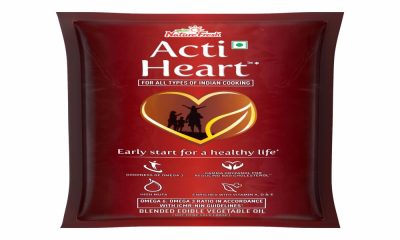Featured
Different Types Of Milk & Their Benefits!
WHOLE MILK
Whole milk is cow’s milk with none of the fat removed. One cup contains about: 150 cal (12 g carbs in the form of lactose (milk sugar), 8g of fat, 8g of protein. None of the milk’s natural components are removed.
PROS: Whole milk provides us with essential proteins, extra calories from fats, as well as vitamins and minerals. Whole milk is easily accessible anywhere.
CONS: The versions that aren’t fat-free are higher in saturated fats and calories. The protein in cow’s milk can be a common allergen for babies & adults. Whole milk isn’t suitable for people who are lactose intolerant or dairy sensitive.
SOY MILK
Soy milk is made from soybeans and filtered water. Like other plant-based milk, it has thickeners to improve consistency and shelf life.One cup of unsweetened soy milk: 80-100 calories (4g of carbs, 4g of fat, 7g of protein.)
PROS: Since it comes from plants, soy milk is naturally free of cholesterol & low in saturated fat with no lactose. It has same amount of protein as cow’s milk yet lower in calories. Good source of vitamin A, vitamin B-12 & potassium.
CONS: Soy is a common allergen for both adults and children. Too much soy may be a problem for people with thyroid and other fertility conditions. Most of the soy produced in North America comes from genetically modified plants, which is a concern to some.
ALMOND MILK
Almond milk is made from ground almonds & filtered water. It contains thickeners to improve its consistency and shelf life.Unsweetened Almond milk is the lowest in calories. Per cup, unsweetened almond milk has 30-60 cal (1g of carbs, 3g of fat, 1g of protein.
PROS: It’s incredibly low in calories and contains no saturated fat. It’s a good source of vitamin A and can be fortified to be a good source of calcium and vitamin D. It’s naturally lactose-free, great for those with sensitivity to dairy.
CONS: Even though almonds are a good source of protein, almond milk is not a great source of calcium. But many brands supplement with calcium & vitamin D.




















